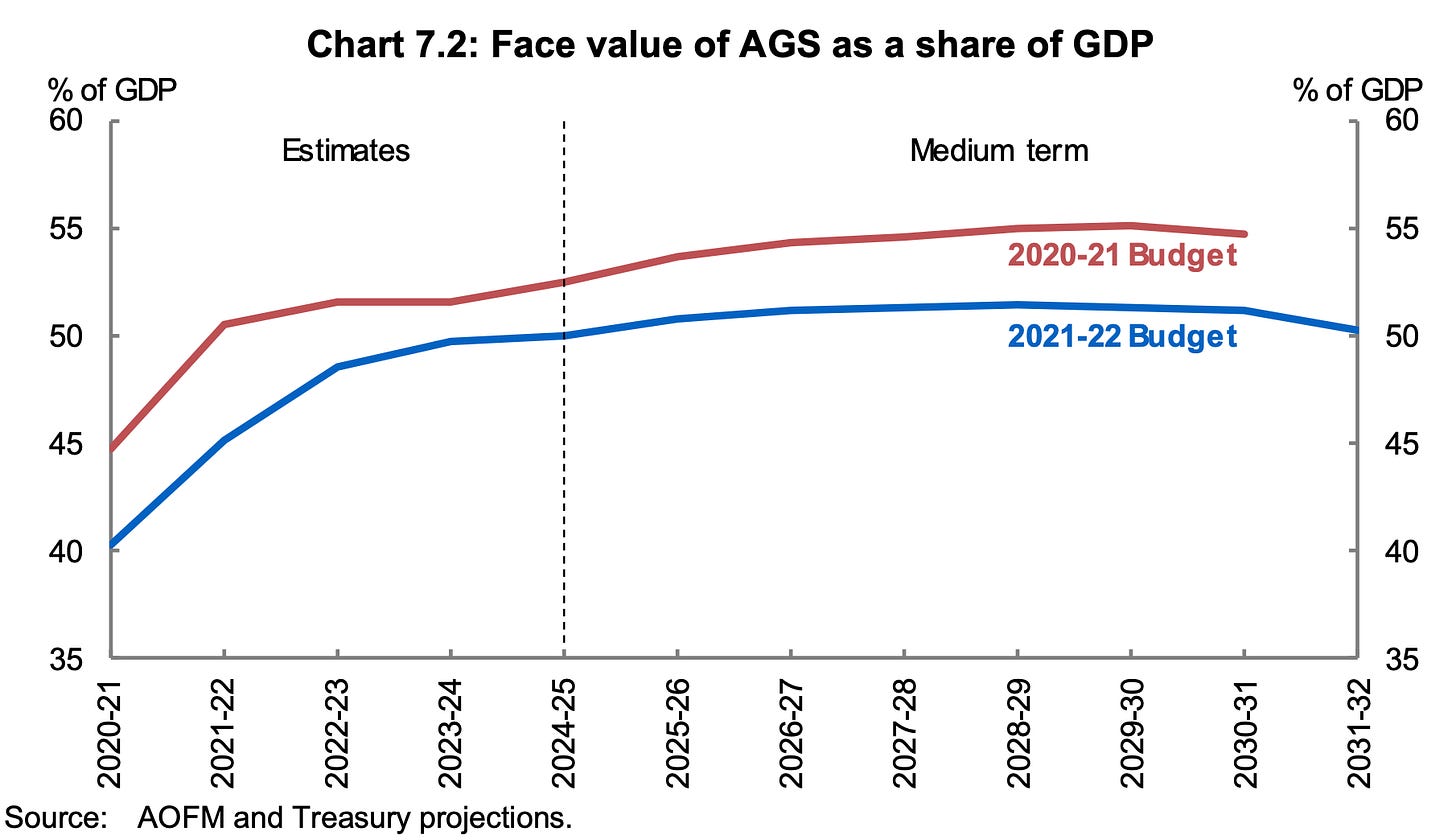While Labour frets about debt of 32% of GDP and a ‘tight budget’, Australia’s conservative government has embraced major deficit spending on poor, infrastructure and aged care, and is relaxed about 50% debt, writes Bernard Hickey.
This story was originally published in Bernard Hickey’s email newsletter The Kākā and is republished with permission.
It’s a remarkable thing to see. Our Labour government is talking about the need to reduce debt within a couple of years and is restricting infrastructure, housing, welfare and public sector pay in its budget next week, even though net debt is just 32% of GDP.
Meanwhile, the ostensibly more conservative Liberal-National coalition in power in Australia last night unveiled a A$107b deficit spending plan for 2021/22 and expects to run deficits for the rest of the decade, building up a debt load of a trillion Australia dollars by 2024/25 or around 50% of GDP.
The Liberal-National plans unveiled last night included another A$1,080 worth of tax breaks for low-income individuals and A$2,160 for couples, an extra A$17.7b over four years on aged care, an extra A$2.3b on mental health, an extra A$13.2b on disability insurance (a bit like ACC) and A$15b extra on infrastructure.
Australia has the same AAA credit rating as New Zealand and Standard and Poor’s has put Australia’s rating on a negative watch, but that hasn’t deterred it. Australia expects to run deficits for the rest of the decade, while finance minister Grant Robinson has already pivoted to spending restraint and debt reduction within two to three years.
So why is New Zealand being so paranoid about high debt and restricting spending on families with poor kids, transport infrastructure, housing and health-care? Why is our government choosing to use the $30b improvement in tax revenues and spending from the better-than-expected economic recovery to reduce debt, while Australia has decided to spend A$94b of its A$100b improvement.
Aussie business leaders happy
“Our recovery needs to be secured,” Treasurer Josh Frydenberg told ABC television last night. The expected deficit of A$107b for 2021/22 was A$40b more than economists expected because of the extra spending.
“They’re the initiatives that we put in place designed to boost aggregate demand, overall economic activity, and create more jobs, because we cannot take the gains that we’ve made for granted,” he said.
Subscribe to When the Facts Change on Apple Podcasts, Spotify or your favourite podcast provider.
Australia’s deficit is on track to still be A$57 billion in 2024/25, while Robertson is expected to target surpluses from then in next Thursday’s New Zealand Budget.
Business groups in Australia welcomed the looser fiscal stance. “We are on the right track,” Business Council of Australia chief executive Jennifer Westacott said.
“The budget builds on the significant gains we’ve made to create jobs, get people and businesses back to work, rebuild confidence and fire up economic growth,” she said.
To be fair to our business community, there have been no calls for the fiscal stringency talked about by the government in recent weeks.
Bernard Hickey hosts When the Facts Change, a weekly podcast exploring the intersection of business, politics and economics in Aotearoa. Subscribe and listen on Apple Podcasts, Spotify or your favourite podcast provider.






